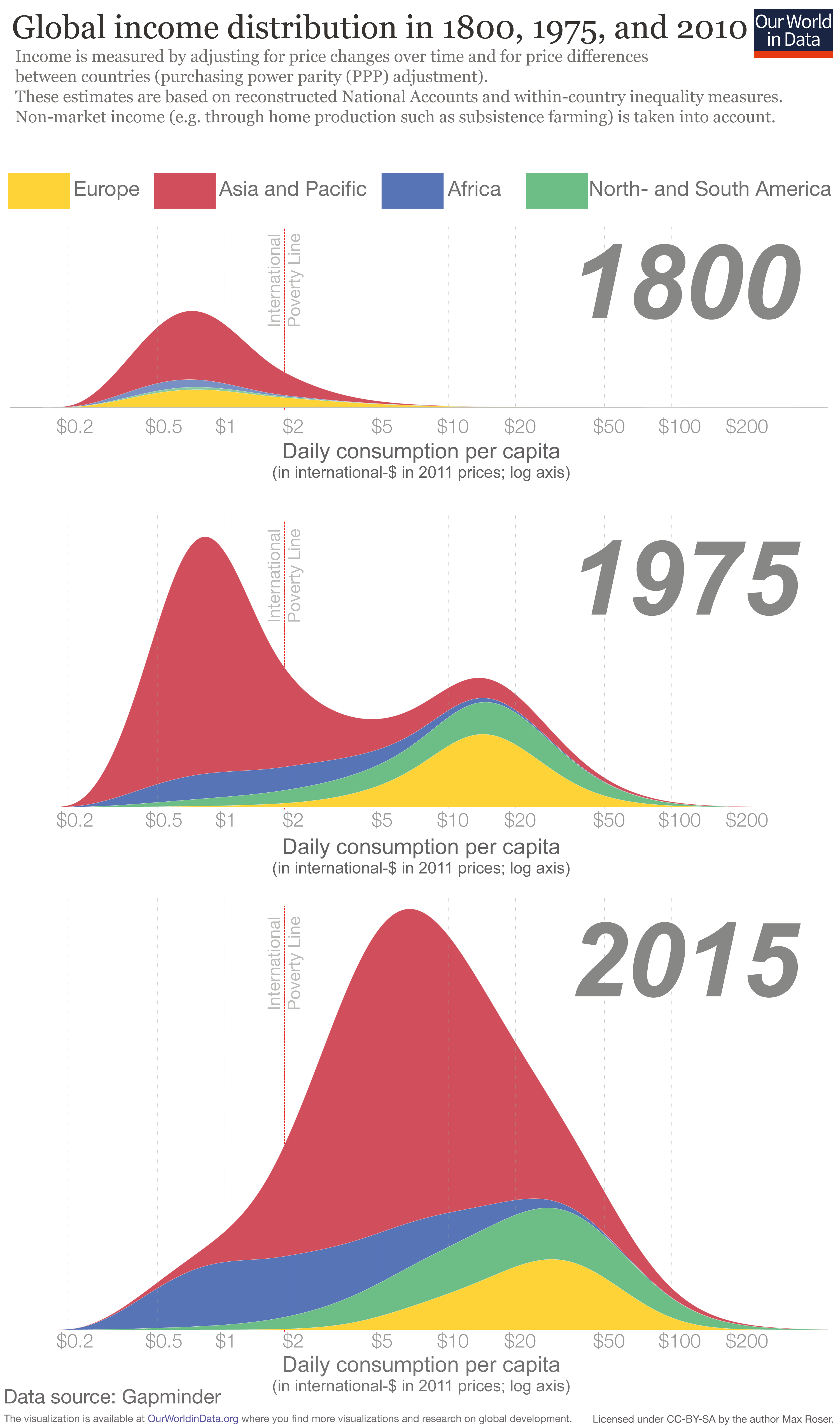I strongly disagree.That billionaires exist at all is testament to how badly we effed up the fundamental structures of our societies.
That billionaires exist is not a problem at all. Quite the opposite, in fact.
That there are people without access to proper shelter, education, sanitation etc - now that is a problem... and we're making some progress there, at least according to some data:
https://ourworldindata.org/poverty-at-higher-poverty-lines
Also:
https://ourworldindata.org/global-economic-inequality
Spoiler large chart :

Last edited:
